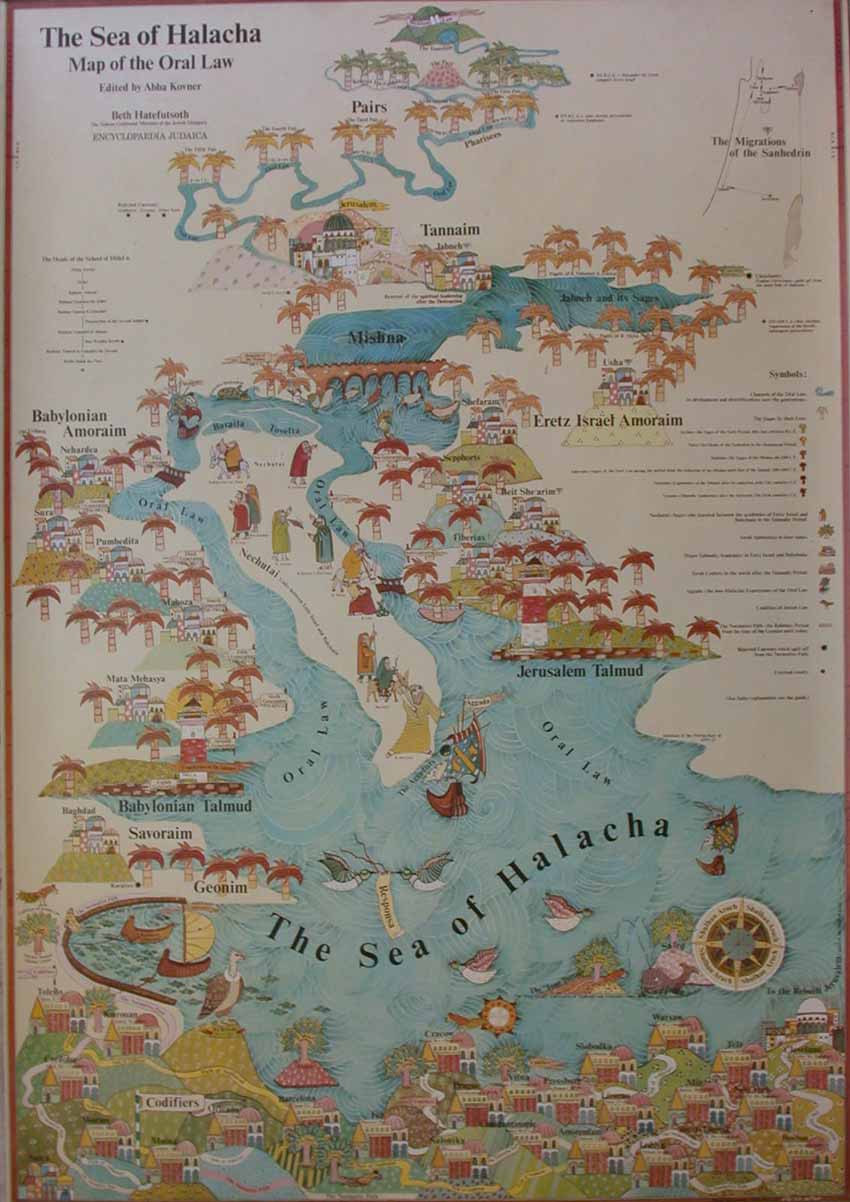8
מִי שֶׁהָיָה עוֹסֵק בְּתַלְמוּד תּוֹרָה וְהִגִּיעַ זְמַן הַתְּפִלָּה פּוֹסֵק וּמִתְפַּלֵּל. וְאִם הָיְתָה תּוֹרָתוֹ אֻמָּנוּתוֹ וְאֵינוֹ עוֹשֶׂה מְלָאכָה כְּלָל וְהָיָה עוֹסֵק בַּתּוֹרָה בִּשְׁעַת תְּפִלָּתוֹ אֵינוֹ פּוֹסֵק, שֶׁמִּצְוַת תַּלְמוּד תּוֹרָה גְּדוֹלָה מִמִּצְוַת תְּפִלָּה. וְכָל הָעוֹסֵק בְּצָרְכֵי רַבִּים כְּעוֹסֵק בְּדִבְרֵי תּוֹרָה:
9
אֵין הַמִּתְפַּלֵּל מַפְסִיק תְּפִלָּתוֹ אֶלָּא מִפְּנֵי סַכָּנַת נְפָשׁוֹת בִּלְבַד. וַאֲפִלּוּ מֶלֶךְ יִשְׂרָאֵל שׁוֹאֵל בִּשְׁלוֹמוֹ לֹא יְשִׁיבֶנּוּ. אֲבָל פּוֹסֵק הוּא לְמֶלֶךְ עוֹבֵד כּוֹכָבִים שֶׁמָּא יַהַרְגֶּנּוּ. הָיָה עוֹמֵד בַּתְּפִלָּה וְרָאָה מֶלֶךְ עוֹבְדֵי כּוֹכָבִים אוֹ אַנָּס בָּא כְּנֶגְדּוֹ יְקַצֵּר וְאִם אֵינוֹ יָכוֹל יַפְסִיק. וְכֵן אִם רָאָה נְחָשִׁים וְעַקְרַבִּים בָּאִים כְּנֶגְדּוֹ אִם הִגִּיעוּ אֵלָיו וְהָיָה דַּרְכָּן בְּאוֹתָן הַמְּקוֹמוֹת שֶׁהֵן מְמִיתִין פּוֹסֵק וּבוֹרֵחַ. וְאִם לֹא הָיָה דַּרְכָּן לְהָמִית אֵינוֹ פּוֹסֵק:
10
נָשִׁים וַעֲבָדִים וּקְטַנִּים חַיָּבִים בִּתְפִלָּה. וְכָל אִישׁ שֶׁפָּטוּר מִקְּרִיאַת שְׁמַע פָּטוּר מִן הַתְּפִלָּה. וְכָל הַמְלַוִּין אֶת הַמֵּת אַף עַל פִּי שֶׁאֵין לַמִּטָּה צֹרֶךְ בָּהֶן פְּטוּרִין מִן הַתְּפִלָּה:
8
If one was occupied with the study of the Torah, he intermits his studies when the time for prayer arrives and recites the service. If study was his profession and he does no other work, he does not stop learning if he is engaged in it at the time of prayer; for the duty of studying Torah is more important than that of reciting prayer. One who occupies himself with the needs of the community is in the same class with one who is occupied with the study of the Torah.
9
A person who is praying must not break off his prayer, except only if he is in mortal danger. Even when a king who is an Israelite greets him, he must not return the greeting. But if the king is an idolater, he stops, lest the king puts him to death. If, while standing and praying, he sees a king who is an idolater or a man of violence coming towards him, he should shorten the prayer. If unable to do so, he should stop praying. So too, if he sees snakes and scorpions, whose sting in that locality is deadly, moving in his direction, he stops his prayers as soon as they get near him and escapes. But if their sting is not deadly, he does not intermit his prayers.
10
Women, slaves and children are under an obligation to recite the prayers. Every person exempt from reading the Shema is exempt from reciting the prayers. All those who follow a funeral, although they are not needed to carry the bier, are, for the time being, exempt from reading the prayers.



